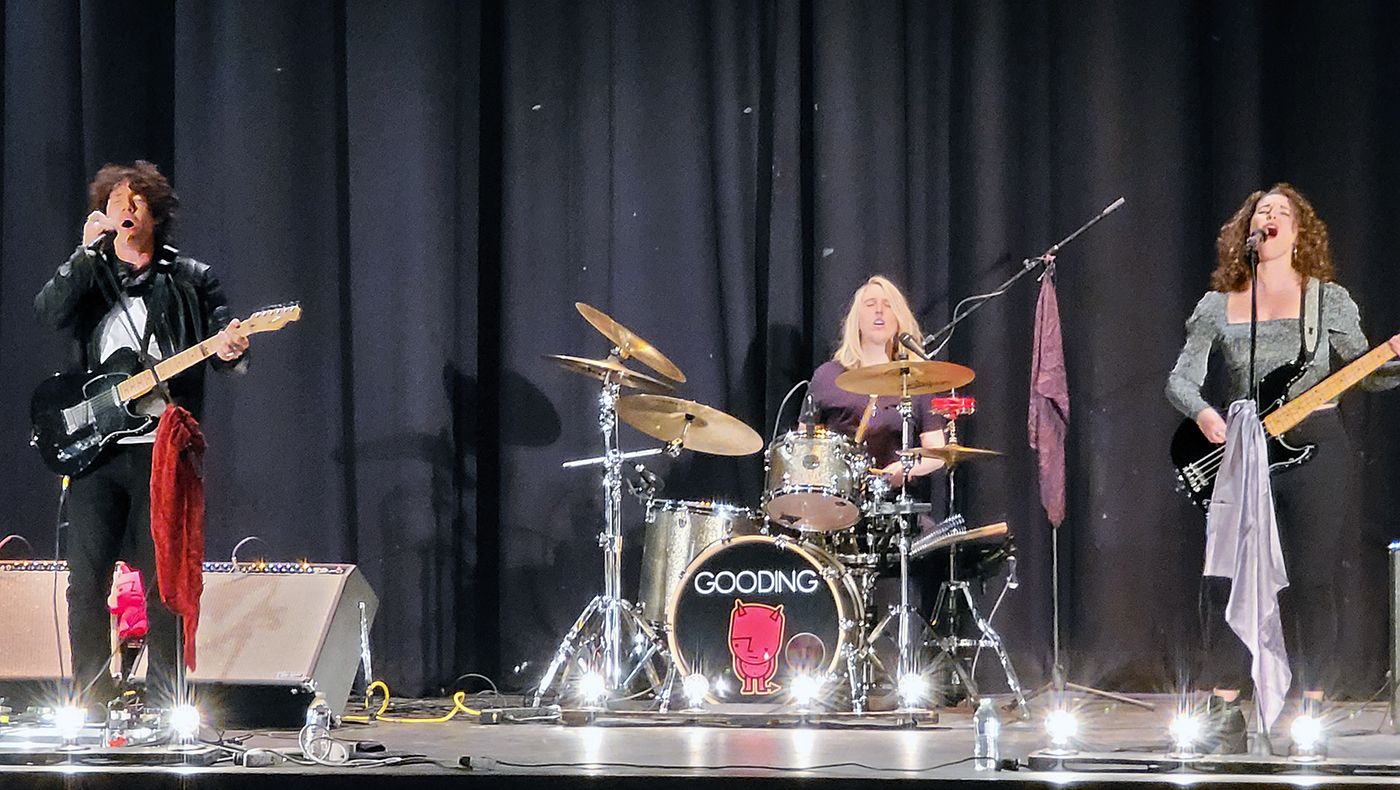Steven Gooding, front man and lead guitar of the rock band Gooding, had big dreams when he started out as a musician in the Midwest in the early ‘90s.
“I was going to move out to LA, get a record deal, buy my mom a house and live happily ever after,” Gooding said.
In a few short years, though, he was in over his head financially and “screwed up his credit score before I knew what a credit score was.”
For his band to be successful, Gooding knew they needed to get their finances under control. Through hard work and education, Gooding did just that. He realized more needed to be done to make sure children had the financial education they needed to be successful in life.
Gooding founded the nonprofit Funding the Future (FTF) to bring the message of developing good saving habits and the dangers of too much debt to high school students nationwide. Funding the Future’s Financial Literacy Tour has reached more than 197,000 students across 33 states.
Together with bandmates Erin O’Neil and Mike G, Gooding hosted a series of high-energy concerts at four Delaware high schools this fall: Concord High School, Brandywine High School, St. Georges Technical High School and Appoquinimink High School. University of Delaware’s Center for Economic Education and Entrepreneurship (CEEE) at the Alfred Lerner College of Business and Economics was instrumental in making these concerts happen.
“Funding the Future’s mission aligns very well with that of the CEEE,” said CEEE’s Program Coordinator Scott Bacon. “We’re both passionate about education so young people will graduate as financially literate adults ready to participate in the global economy.”
Bacon felt that Gooding’s talent to create incredible music to captivate the kids did not overshadow his stage presence when he then moves into his dialogue about the importance of financial literacy.
Even better still, Bacon commented the band’s willingness to be open and honest about their own financial pitfalls and passion for helping students avoid the same mistakes, resonates with students.
“Students become excited to learn more about making smart financial decisions,” Bacon said.
Through a concert and a multimedia presentation, the band inspired the students with lessons of finance and discipline to see their own dreams as possibilities.
“Financial literacy doesn’t sound very rock n’ roll,” Gooding said. “But for me, the most rock n’ roll thing on this planet is when people are working hard to get a fair shot and a level playing field.
“Only 16% of schools in the country have financial literacy programs. The lack of knowledge about money is hurting our communities.”
The music presentation was followed by the personal story of the band’s struggle to overcome poor money management as they followed their dream to become recording artists. Today, Gooding’s music has been featured in more than 200 films and TV shows.
Students also learned the importance of developing good saving habits early, types of debt available to students, wise use of debt, the dangers of too much debt and high interest debt/payday lenders, how credit scores work, and how to control spending through tracking, budgeting and goal setting.
“There are no shortcuts or quick fixes,” Gooding said. “The hype of overnight success in sports, music and acting can lead us to believe that our day to day discipline and the mentors in our own communities don’t have value, when these are the most important resources we have.”
Concord High School Math Teacher Jennifer O’Neill, a graduate of CEEE’s master of arts in economic education and entrepreneurship program, brought her senior class to the performance.
“We invite seniors because they are learning math and personal finance,” O’Neill said. “We try to make them more knowledgeable in personal finance, because it is a subject that isn’t taught as much these days.”
O’Neill shared that the age group from 19-29 year olds is typically the group with the most bankruptcies and worst credit scores.
“Music connects everybody,” O’Neill continued. “By starting with the music first and then giving examples of entertainers who made money and lost it because of bad financial practices, the band really connected with the students.”
“We were actually just doing a unit on budgeting and credit right before the concert and now, we’re just in savings and investing,” O’Neill said. “We were able to apply all that right back into our class.”
Concord High Senior Amani Simmons thought the overall experience was great.
“I loved how the group included music, as well as planning about finances,” Simmons said. “I feel as though everyone walked out knowing something more than when they walked in.”
For fellow Concord High Senior Julian Harris, it was important to “learn about preparing for our future and great ways to properly spend, save and invest our money.”
“They taught us their experience and it was great to see how far they came.” Harris said. “What I am going to do is to take the information from the concert and from this class and use it in real life.
“You don’t have to buy anything just because you like it. Like my father would tell me, it’s delayed gratification, that was something they talked about in the concert and in the class.”




